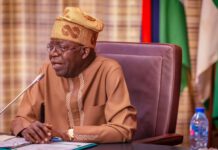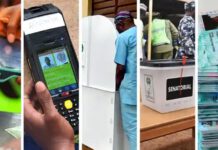 In apparent response to criticism that it is a toothless bulldog when it comes to issues of corruption, the Economic and Financial Crimes Commission, EFCC, has closed in on ten former governors, who are currently standing trial for dipping their hands into the public till while they were in office.
In apparent response to criticism that it is a toothless bulldog when it comes to issues of corruption, the Economic and Financial Crimes Commission, EFCC, has closed in on ten former governors, who are currently standing trial for dipping their hands into the public till while they were in office.
Among the suspects whose cases are being prosecuted in various courts by the anti-graft agency with a view to bringing them to account for the huge sum of money they were alleged to have stolen are Lucky Igbinedion (Edo), Chimaroke Nnamani (Enugu), Orji Uzor Kalu (Abia), Saminu Turaki (Jigawa) and Joshua Dariye (Plateau).
Others on the trial list of the commission are: Abubakar Audu (Kogi), Danjuma Goje (Gombe), Aliyu Akwe Doma (Nasarawa) and Jolly Nyame (Taraba).
The Head, Media and Publicity of the Commission, Mr. Wilson Uwujaren, made the disclosure at a press briefing in Abuja on Monday.
Mr. Uwujaren said however, the case of corrupt enrichment brought against Governor Ayodele Fayose of Ekiti State has been temporarily put on hold following his election as the governor of the state in line with the immunity clause in the Nigerian Constitution.
The EFCC spokesperson disclosed that apart from seizing the assets of most of the suspects, it had also frozen the accounts of companies linked to the former state governors.
Uwujaren pointed out that a former governor of Borno State, Ali Modu Sheriff might be declared wanted by the commission if he fails to honour its invitation to answer some questions pertaining to a petition against him.
The commission also said it has so far recovered the sum of N65 billion from the suspects.
In the same vein, EFCC said it also recovered $245 million, £693,000 and €62,000 from the corrupt individuals and organisations between 2012 and 2014.





It’s good they have started their work, because “New Administration” new work… If not because of the ‘Immunity’ we really want the current governor of Borno state also be prosecuted, because he’s the fraud governor ever in Nigeria, whose looted the “public funds” in the four years.